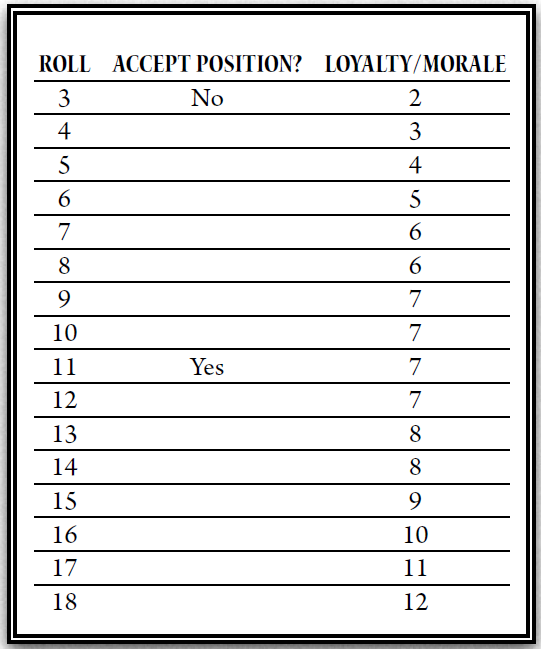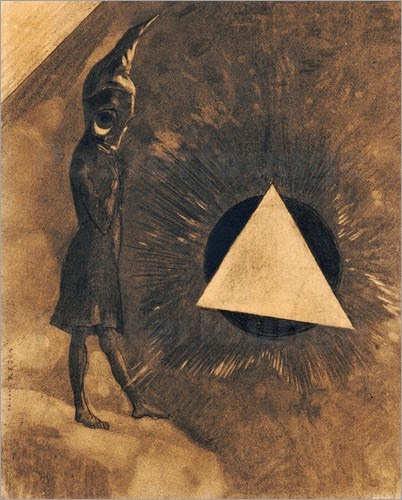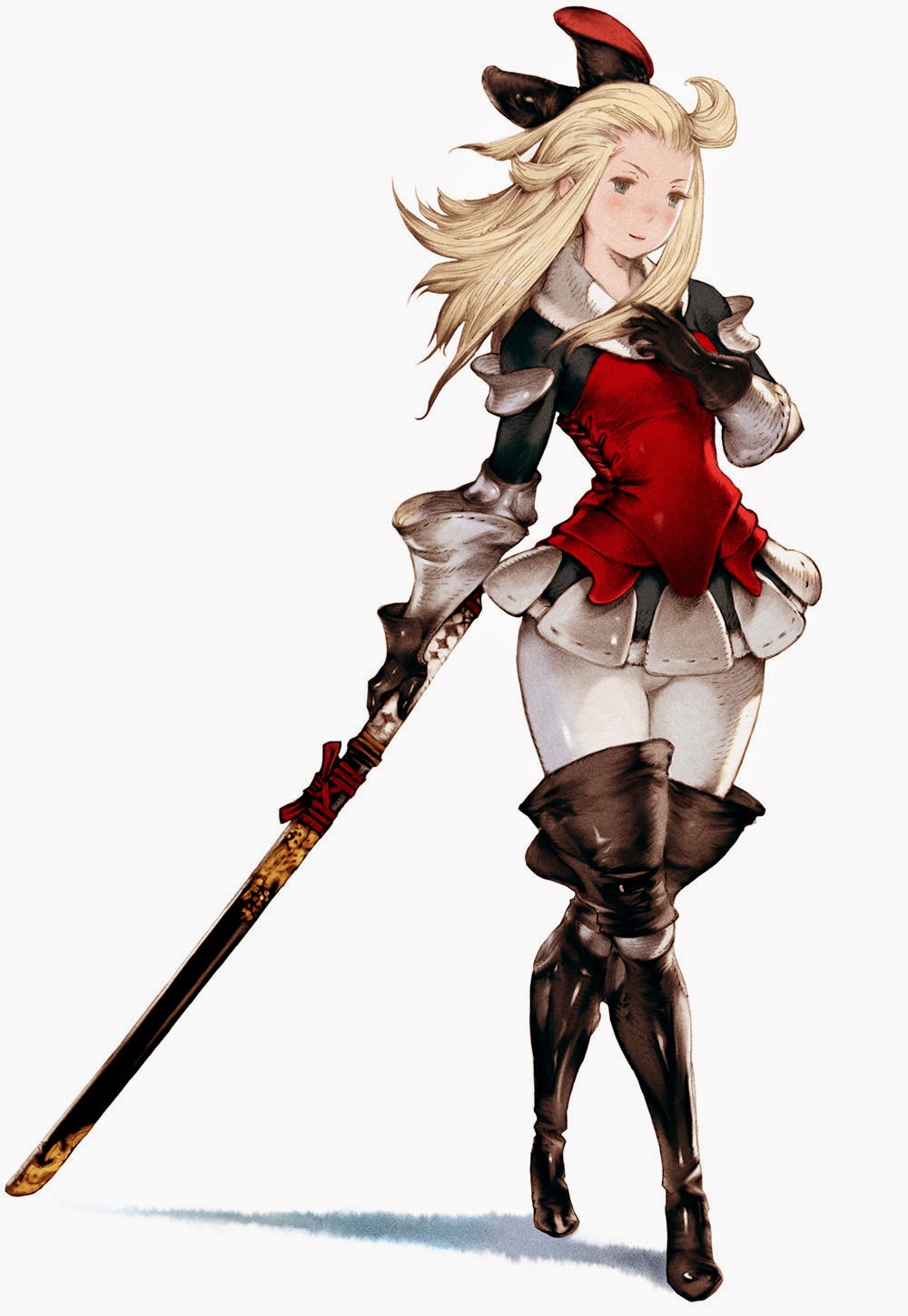Inching forward with Albion, but I need to get this out of my head.
- I have an incurable fixation with Final Fantasy style summons and Pokemon style monster collection
- I like applying existing rules to classes (Starvation rules for vampires, reaction rules for warlocks)
- I have been think the anime series Mononoke (not to be confused with the Miyazaki film), a show that involves a great deal of spirit-wrangling
- I have been reading 1e Oriental Adventures and the fact that the shugenja and wu jen are barely different from clerics and wizards annoys me. I don’t like it when classes are matters of Find+Replace, and the heavy handedness of their depiction of Asia doesn’t help.
- I read Flying Swordsman, and I want more thematically from the Animist than what they’re giving me.
- It just occurred to me that the monsters from my unsuccessful Summoner class are just fancy retainers, which Lamentations of the Flame Princess conveniently already has rules for.
 |
|
Basically, when you want to hire a retainer, you have to spend a small sum of money to get the word out, the DM decides how many people show up, and then they roll 3d6 twice on this table, with various bonuses and penalties based on how attractive your offer is. The first roll is to see if they accept the job, while the second is to see what their morale is.
So the goal is to make an animist/shaman/summoner type class that is easy to learn and use as LotFP’s retainer rules, which a group is conceivably already using.
Spiritualist, a class for Lamentations of the Flame Princess
 |
| from Mononoke |
HP, XP, Attack Bonus, and Saving throws as Cleric
You traffic with spirits, fairies, ghosts, revenants, grudges, and poltergeists of all sorts. Sometimes you can bind them to your will.
Spiritualists learn how to summon and bind spirits with rituals. Each ritual conjures a different kind of spirit, and an animist must learn a ritual from a teacher or text in order to perform it. Regardless, each ritual costs 100 sp×HD of the spirit it summons and takes a number of hours equal to the spirit’s HD.
When you conjure a spirit, roll 3d6 on the both columns of the Summoning table. For both rolls, you should…
- Add half your level, rounded up
- Add +1 for ritual component or instrument you expend in the summoning. As you grow in power, spirits demand rarer and more exotic substances and devices; each costs 10% of the total silver pieces you had to acquire to reach your current level.
- Add a bonus to to the roll based on Terms you are willing to accept on the spirit’s service. You might give up the ability to command a spirit to fight, for example, or only be able to use the spirit in combat against evil creatures. This is up to the DM’s discretion and the player’s creativity.
- Subtract the spirit’s HD
- Subtract the total number of HD of spirits you currently have bound
SUMMONING TABLE
If you roll a 10 or lower on the Result column, then the spirit enters this world to do as it pleases, which probably involves attacking you or fleeing to perform mischief elsewhere. If you roll an 11 or higher, it is bound to you and must obey your orders to the letter, though certain types of commands strain the ritual bindings you have placed on it. You can command bound spirits to inhabit objects such as knives, staves, lamps, and rings. No more than 1 spirit can inhabit a given object.
The second roll determines its Obedience score, which is a measure of the binding ritual’s power and functions similarly to Morale and Loyalty in a mortal retainer. The Referee will keep the Obedience score secret–you don’t get to know what it is.
Check a spirit’s Obedience when…
- You command it to violate one of its Taboos or otherwise act against its nature
- You command it to exercise one of its Talents or otherwise call upon its supernatural abilities
- You make the spirit feel afraid humiliated, angry, or otherwise upset, either due to a command you have given it or your attitude towards it
- You fail to bind a spirit during a summoning
- A spirit bound to you dies.
To make an Obedience check, roll 2d6. If the result is under the spirit’s Obedience, then the ritual bindings hold and it will do as you say. If the result is higher, the spirit breaks from your control. Simple, easy commands like carrying a moderate amount of equipment, transmitting messages, or cleaning a room do not require Obedience checks.
Spiritualists can re-perform the rituals of spirits they have already summoned, in hopes of making them more obedient.
If a spirit is reduced to 0 HP, it returns to the Spirit World until called back again.
Safely releasing a spirit takes 1 Turn per HD.
If a spiritualist dies, all spirits bound to them are immediately and simultaneously released.
Spirits and Rituals
Spiritualists start with knowledge of two of the following:
1. Balance Spirit Ritual
2. Homunculus Ritual
3. Sylph Ritual
4. Undine Ritual
5. Salamander Ritual
6. Gnome Ritual
 |
| from Mononoke |
Balance Spirit (Scale Tsukumogami)
HD: ½-10
HP: 1d8, regardless of HD
AC: 12
Attack: None
MV: Half as fast as a human (fly and hover)
Alignment: Lawful
A spirit that takes the form of a jeweled set of scales, born from a balance used for 100 years. Incapable of both speech and violence, balance spirits can sense the disturbances that evil beings caused in the material and spiritual worlds.
- Talent: Lean towards the most powerful Chaotic spiritual presence within 100 ft, no matter how much it has concealed itself.
- Talent: Spend 1 Round to create a single, perfect copy of itself. The copy has all the same abilities as the original, but the total number of balance spirits cannot exceed twice the original’s HD.
Homunculus
HD: 1
AC: 12
Attack: d4 (fist)
MV: as a human
Alignment: Neutral
A simple servitor spirit; appears as a child-sized figure of grey clay. Homunculi are good cooks, porters, messengers, and cleaners, but they are adverse to violence and not much use in a fight.
- Taboo: Fighting or putting itself in danger
Sylph
HD: 1
AC: 12
Attack: d4 (razor ribbon)
MV: twice as fast as an unencumbered human (hover and fly)
Alignment: Neutral
Diminutive, androgynous, of avian aspect: the least spirits of air. Sylph are distracted, haughty, and obsessed with etiquette; they respond well to courtly mannerisms and are easily fooled by a sudden change in subject. They will fall in love with any prince or princess they see. Sylph hold power over wind and are about as strong as a cat.
- Talent: 5 in 6 chance of following a scent it already knows over land
- Talent: Creating brief gusts of wind, which cannot be stronger than the wind necessary to knock over a tent
- Taboo: Harming a beautiful thing or person in any way; harming an artist
Undine
HD: 1
AC: 12
Attack: d6 (claws)
MV: walk as a heavily encumbered human; swim twice as fast as an unencumbered human
Alignment: Neutral
Minor spirits of water, possessing a serpentine aspect. Undine are malicious, possessive, and compulsive coquettes. They love gifts, displays of submission, and music. They delight in drowning the rude and stupid. Undine can command the flow of water and are about as strong as a child
- Talent: Create up to a gallon of water
- Talent: Flood a victim’s lungs with water (3 in 6 Assassinate/Sneak Attack skill; only works on air-breathing creatures submerged in water)
- Taboo: Creating loud or many noises; harming a musician or an instrument
Gnome
HD: 1
AC: 14
Attack: d6 (club)
MV: walk as a lightly encumbered human; climb the same speed
Alignment: Neutral
A lesser earth spirit of simian aspect. Gnomes are gluttonous, illogical, prone to enigmatic sayings.
Gnomes have a talent for working earth, and have an effective 18 Strength. They also have a great respect for artifice and engineering of all kinds and do their best not to harm man-made objects.
- Talent: Dig, mine, quarry, and otherwise move earth twice as fast as a human and without tools
- Taboo: Damage or put at risk craftsmanship of any sort; includes all man-made objects and devices
Salamander
HD: 1
AC: 12
Attack: d6 (bite), d8 (flame)
MV: walk as a unencumbered human; teleport between any two points joined by a contiguous fire
Alignment: Neutral
A petty fire spirit of feline aspect. Salamanders can create a sudden burst of flame the size of a small campfire within shortbow range, igniting flammable objects and dealing d8 damage to creatures (Save vs Breath to negate). Preservation, protection, and self-control are foreign to salamanders; commanding one to do anything that is not entertaining or destructive requires an Obedience check.
Idol of Truth
HD: 4
AC: 16
Attack: d8 (fists)
MV: As fast as heavily encumbered human
Alignment: Lawful
A stony spirit that appears as an animate statue. It effectively has 18 Strength, and though it can speak, it must be ordered to do and and can say nothing but the last honest statement uttered in its presence. Idols love honesty, revelation, knowledge, and obeying the law; ordering an Idol to break the law, destroy books or records, cover up evidence, or perform similarly duplicitous actions will test its Obedience.
Spirit of Salvation
HD: 10
AC: 16
Attack: d20 (sword)
MV: As fast as an unencumbered human
Alignment: Lawful
A heavenly swordsman of surpassing skill, sent by the gods to purge Earth of evil. The Spirit of Salvation is immune to spells and its attacks bypass all resistances. However, it is bound by immutable celestial laws. The Spirit of Salvation can only be commanded to attack Chaotic spirits, and only after the spiritualist has determined…
- The evil spirit’s Form, or true shape and name
- The evil spirit’s Reason, or deepest desire
- The evil spirit’s Truth, or the circumstances that created it
These count as Terms, and provide a +3 bonus to the roll to determine the Spirit’s loyalty. Traditionally, spiritualists allow Spirits of Salvation to spend the time between battles inside of a sword.
























